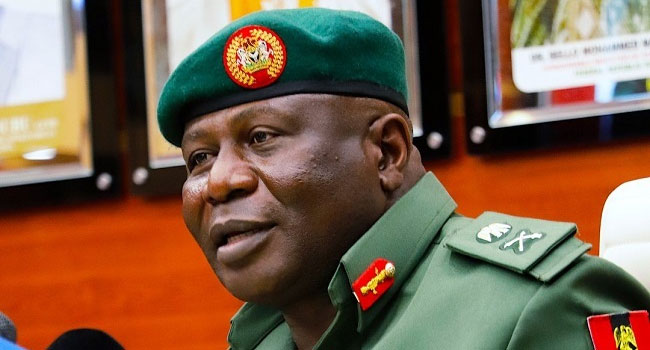
The Senate has considered a bill seeking to establish the Federal College of Education, Gwoza, Borno State.
The bill which scaled second reading on Tuesday during plenary is sponsored by Senator Ali Ndume (APC, Borno South).
Leading debate on the bill, Ndume said the intent behind the establishment of the institution of learning is predicated on the need to have a strong educational sector that would continuously produce well qualified and trained teachers.
According to the lawmaker, the Federal College of Education, when established would, among others, transform the educational fortunes of the people of Borno north, and contribute to the development of the north east region devastated by insecurity.
He said, “Mr. President, my highly respected Colleagues, the enactment of this Bill Will help in transforming the educational fortunes of the people of Borno North, a Senatorial District that has existed without a higher institution of learning despite its size and population.
“It may also interest you to know that the establishment of this College would be an addition to the only existing higher institution (University of Maiduguri) in the State.
“The enactment of this Bill will help not only in transforming the decayed educational infrastructures in Nigeria, but also help in the development of the hitherto devastated North East Region of the Country.”
According to the lawmaker, the establishment of the institution would bring quality change in education by focusing on teacher education through teaching and learning innovations.
He added that the Institution would collaborate with other national and international institutions involved in training, research and development of Education with a view to promoting governance, leadership and management skills among Educational managers.
Ndume stressed that the Federal College of Education, Gwoza, would identify educational needs of the society with a view to finding solutions to them within the context of overall national development; as well as provide and promote sound basic education training as a foundation for the country’s development, taking into account indigenous culture and the need to enhance national unity.
Highlighting the need to provide higher education and foster a systematic advancement of the science and art of teacher education, the lawmaker said the institution would be a bastion that provides instruction on the various branches of Teacher Education for the purpose of research advancement and dissemination of knowledge.
Lawmakers such as James Manager (PDP, Delta South) and Ibrahim Shekarau (APC, Kano Central), in their contributions, said that having such an institution in Borno State, particularly against the backdrop of insurgent activities which threaten education, would encourage parents to send their children to school.
On his part, Senator Abubakar Kyari (APC, Borno North) described the proposal to establish the Federal College of Education, Gwoza, as a “welcomed idea”.
He added that the presence of the institution would meet the educational needs of residents of the area, which is considered the most populous local government in Borno State.
Also contributing, Senator George Thompson Sekibo (PDP, Rivers East), called on the Federal Government to approve the establishment of the institution when eventually passed by the National Assembly, adding that doing so would assuage the people of the state which has been worst hit by the activities of Boko Haram.
“We have to, on a continual basis, bring development to that area, so that the deficit can be assuaged”, Sekibo said.
The bill after passing second reading, was referred by the Senate President, Ahmad Lawan, to the Committee on Tertiary Institutions and TETFUND for further work.
The Committee which is Chaired by Senator Ahmed Baba Kaita (APC, Katsina North), was given four weeks to report back to the Senate.



